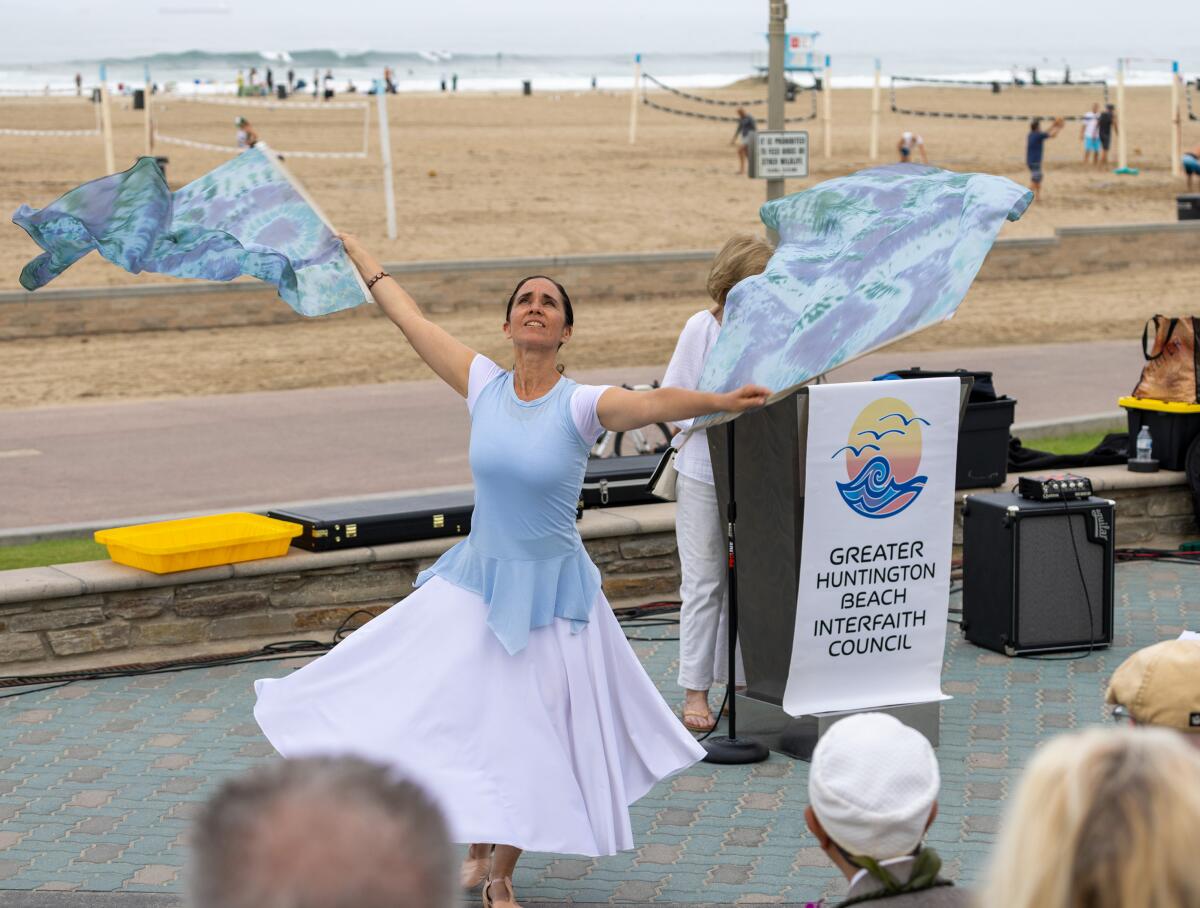Pastor’s Perspective: Religious diversity is a foundation of the nation

As we gear up for our next national election and those here in Orange County this November, and seeing flags and bumper stickers locally for competing viewpoints everywhere I turn, it behooves all of us to reflect anew on the meaning of “democracy” and what is at stake in its preservation. Our democratic form of government is a precious inheritance bequeathed to us by the founders of our nation and its future should not be taken for granted. Like everything historical, its meaning can only be preserved by those who understand its importance and are committed to its continuation and furtherance. But sadly, there are two aspects of our culture that work against a genuine understanding of democracy and thus undermine commitment to the values enshrined in our Constitution. These are anti-intellectualism and historical amnesia. The former belittles the role of ideas in our common life and thus discourages serious discussion of them. The latter is ignorant of the past that has shaped our nation. Yet there is not only widespread ignorance of American history but also deep resistance to teaching the truth about our nation’s origins and the revolutionary ideas that made our nation unique. Responsible citizenship requires that we know our history well enough to understand the ideas that gave birth to our democracy and still undergird it. Otherwise there can be no genuine patriotism worthy of the name.
I offer these reflections not only as an American citizen who believes in democracy and the freedoms it makes possible but also as a Christian minister since these days so much of the anti-intellectual historical amnesia that threatens the future of our democracy is heard on the lips of Christianity’s most vocal public representatives. I refer to the leaders of that movement called “the Religious Right” or “Christian nationalism” which has grown in influence since the 1980s. Its proponents explicitly seek political power for the purpose of legally establishing their own brand of fundamentalist-evangelical religion. Their religious-political agenda rests upon the historically false belief that the United States was founded as an officially “Christian” nation based upon “biblical principles.” This movement imperils the freedom of religion not only of non-Christians but also of all Christians who dissent from its religious-political agenda. And freedom of religion is central to the meaning of democracy. I thus find myself in the seemingly odd position of being both a professional leader of a Christian church (the United Methodist Church, which is the third largest American denomination after Catholics and Southern Baptists) and an opponent of any attempt to establish my religion as the official religion of our nation.
When the Pilgrims came to our shores, they sought religious freedom for themselves as dissenters from the Church of England, which was the official religion of the nation they had left behind. Hence, their dissent was that of a minority of Christians opposed to the majority of Christians in England who had their nation’s legal and political power behind them. With such power at their disposal, the majority could coerce the minority to embrace its beliefs by threatening either exile or execution. The story of the Pilgrims and their reasons for coming to this continent should stand as a constant reminder of what it means to be a persecuted religious minority. But these refugees from religious persecution had no interest in guaranteeing the religious freedom of any other Christians who disagreed with them! That is why colonial New England ended up being as intolerant of religious diversity as the England of old. The historic significance of Rhode Island, led by the Baptist dissenter Roger Williams, was that it was the first American colony to enshrine real freedom of religion. Williams advocated for a “hedge or wall of separation” between church and state since both, he believed, could easily be corrupted through their alliance. He was surely right about this. The historical record bears him out.
When the United States was created in 1776, our Founding Fathers made a deliberate decision that this nation would not be an officially Christian nation, which made it unlike all the nations of Europe that had a state church. By definition, the United States does not have any official religion at all. This is what it means to say that our democratic form of government is secular, not religious. Indeed, this freedom of religion from governmental interference is what made the United States the first truly “modern” nation in Western history. But religious freedom does not mean that our nation is anti-Christian or anti-religious. Quite the contrary! This freedom allowed each distinct variety of Christianity to flourish on this continent, Catholic as well as Protestant. It also made America a safe haven for Jews who had been subject to persecution in the officially Christian nations of Europe. The corollary of this freedom of religion, however, is the commitment of all of our citizens of whatever religion to refrain from efforts to impose their own religion upon the nation as a whole by making it the official religion.
These utterly crucial ideas gave birth to our nation and made it the world’s paradigmatic democracy. Responsible citizenship requires accurate knowledge of our history and appreciative understanding of the necessarily reciprocal relationship between freedom of religion and democracy. As both an American and a Christian, therefore, I support democracy because I believe in the freedom of religion that only a democratic form of government can protect.
Rev. Paul E. Capetz is the head pastor at Christ Church by the Sea in Newport Beach.
All the latest on Orange County from Orange County.
Get our free TimesOC newsletter.
You may occasionally receive promotional content from the Daily Pilot.



